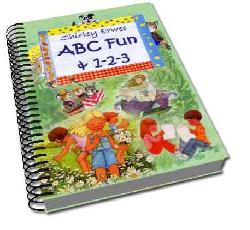| Back to Back Issues Page |
 |
|
3 Tips for Music Appreciation July 18, 2016 |
3 Tips for Music AppreciationWhen our children were babies, we gradually introduced them to foods of different flavours and textures and today there are probably some foods they love and hopefully only a few that they dislike. Similarly, in our homeschooling adventure, we can introduce our children to a wide range of interesting subjects and help them to discover the things that really interest and inspire them. Even if you are not musically gifted, you and your children can enjoy discovering the huge variety of different styles of music and enjoy the talents of those who are skilled musicians. In addition, neuroscientists are discovering more and more about how music develops our brains. They report that listening to music can raise your IQ score, improve problem-solving skills, improve comparing and contrasting the similarities and differences between objects, improve emotional development and improve the functioning of neural pathways and networks between different parts of the brain. Music stimulates neurons in the auditory cortex to interpret the sound while the cerebellum recognises the beat – and amazingly these are the same neural pathways used for language. Researchers have also found correlations between part of the brain stimulated by music and those used for mathematics. So, besides giving us pleasure, an appreciation for the music of our own culture and of other cultures has academic benefits too. Here are tips to help your expose your children to music: 1. Music on a Monday – Mark your calendar or diary to remind yourself each Monday (or any other day that suits you) to play a piece of music for your children to listen to. A good place to start is at www.classicsforkids.com where there is a lot of material to help you and your kids get exposed to classical music. 2. Work to Music – While you and your children are going about your daily responsibilities, play your favourite music. Sing along, dance and jiggle while you work. 3. Invest in a few musical CDs created specially for children with nursery rhymes, folk songs etc. and play them in the car. A friend’s daughter asked to take violin lessons after listening to the story of Katerina in Vivaldi’s Ring of Mystery. Perhaps listening to good music will be inspire your children to learn to play an instrument too! There are more tips and suggested resources for enjoying an adventure in music for ALL ages on my website here: Music Appreciation
Developmental ActivitiesGross motor skills Let your child climb inside a pillow case. Holding it up with her hands and with her feet in the corners she must take small steps forward. To make it interesting if she finds this easy, place obstacles in her path or ask her to jump forward with both feet together. Fine motor skills Encourage your child to draw pictures of whatever she chooses. By now she is at the pre-schematic stage. She will combine different shapes such as lines and circles to represent things. Visual perception 1. Work on a color scrap book together. Encourage your child to cut out different shades and tones from magazines and paste them on the correct color page in her book. 2. Play the hop-scotch-shape game my kids invented this week-end. Using chalk, draw different shapes on the ground at random, a leap apart. Number them in sequence. Your child must name the different shapes as she leaps back and forth from one to the next. Begin with known shapes, like circle, square, triangle, then add a rectangle, oval, hexagon, heart, house, octagon, diamond, star etc. Have fun. Auditory perception This game is for multiple players. Blindfold one person. The others must each make a sound. The blindfolded player must name the sound and say who made it. You can whisper, sneeze, cough, giggle, growl, squeek, singing, barking etc. Language and thinking Read a book together in which the emotions of the characters are clearly depicted. After reading the story, page through the book again and talk about expressions. Develop vocabulary to describe feelings like sad, scared, happy, glad, shocked, worried, sleepy etc. Encourage your child to use new vocabulary in her conversation. Some suggestions:
We’re Going on a Bear Hunt Faith building Honour your father and your mother. The Bible commands children to honour and obey their parents. As parents we know that this is for their own good, but as children ourselves, do we as adults set the example, by honoring our own parents? I am not suggesting that you should still obey your parents, but by your actions and your tone of voice, when speaking of them, you should show respect - no matter what kind of people they are or were. Your children will learn to honor you by the example that you set for them. If you are too busy to visit, phone or write to your parents or in-laws, the chances are that the same will happen to you …so this activity is for you and your child – pick up the phone, write an email or let her draw a picture to send to her grandparents. Build family relationships. If your parents have passed on perhaps you could befriend some other older person.
Regards Designed for ages 3-6 years, ABC Fun & 1-2-3 is a story-based preschool curriculum with printable alphabet worksheets, weekly lesson plans, easy kids crafts, nursery rhymes and more - all to make learning the ABC fun! |
| Back to Back Issues Page |
